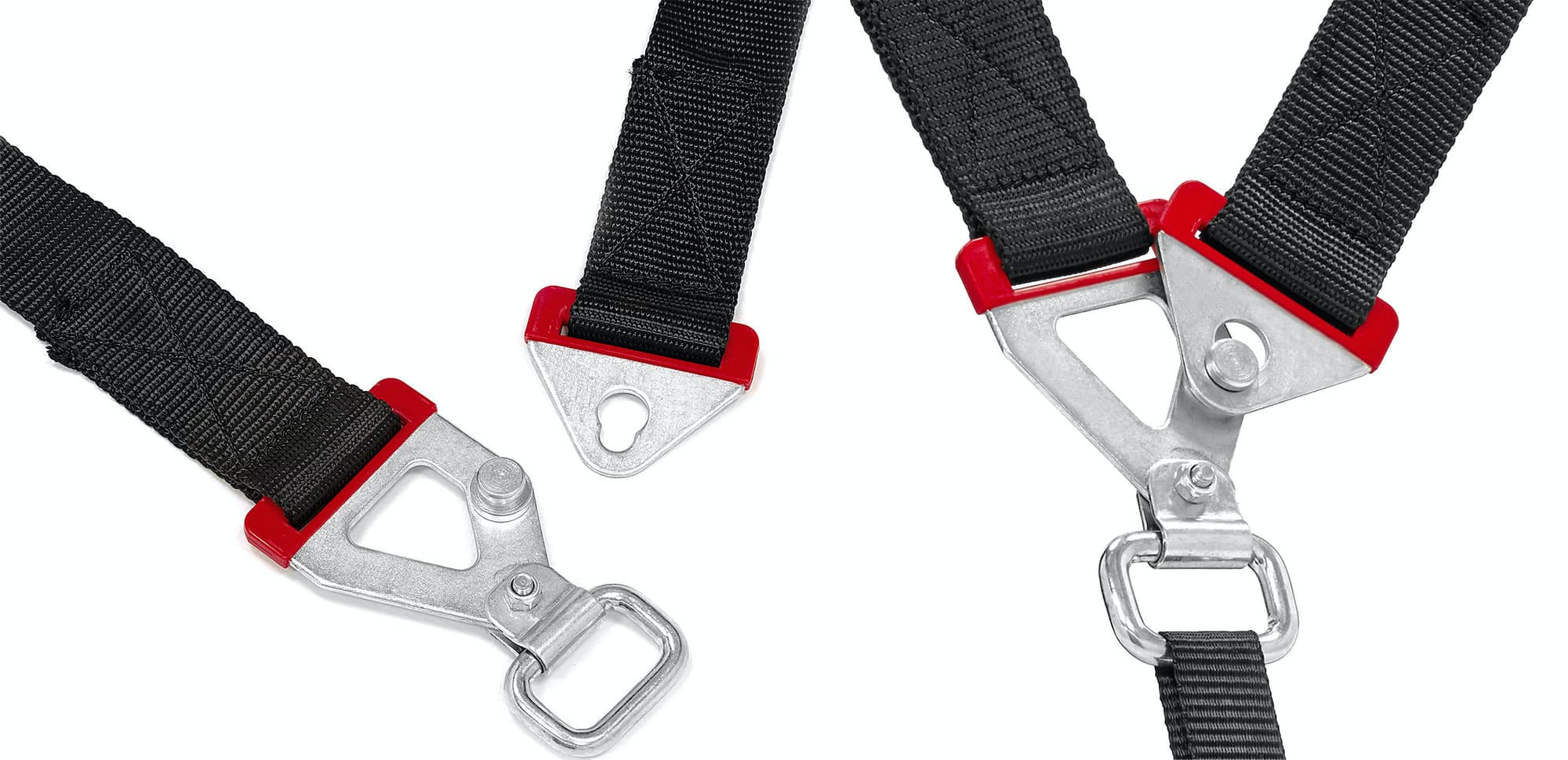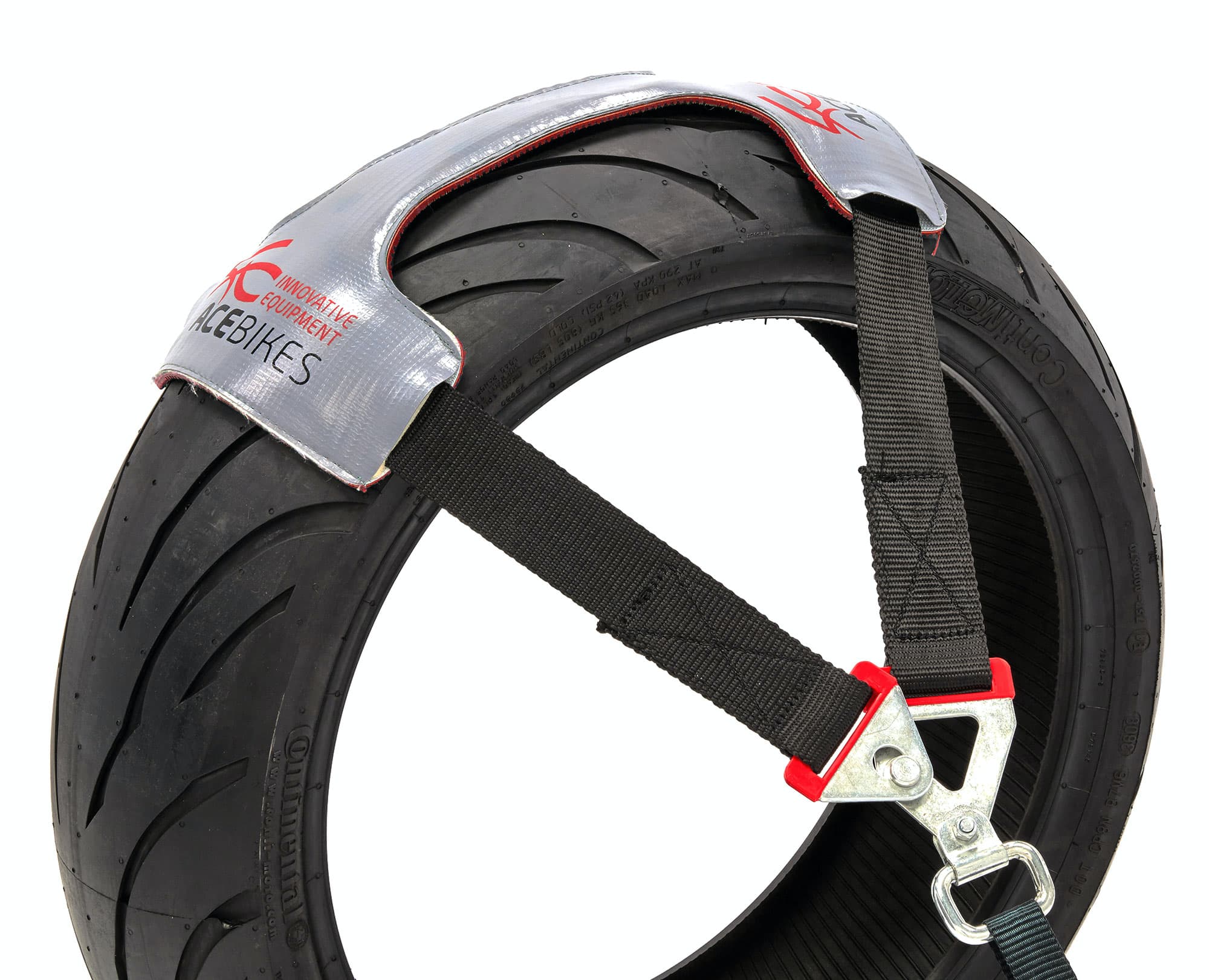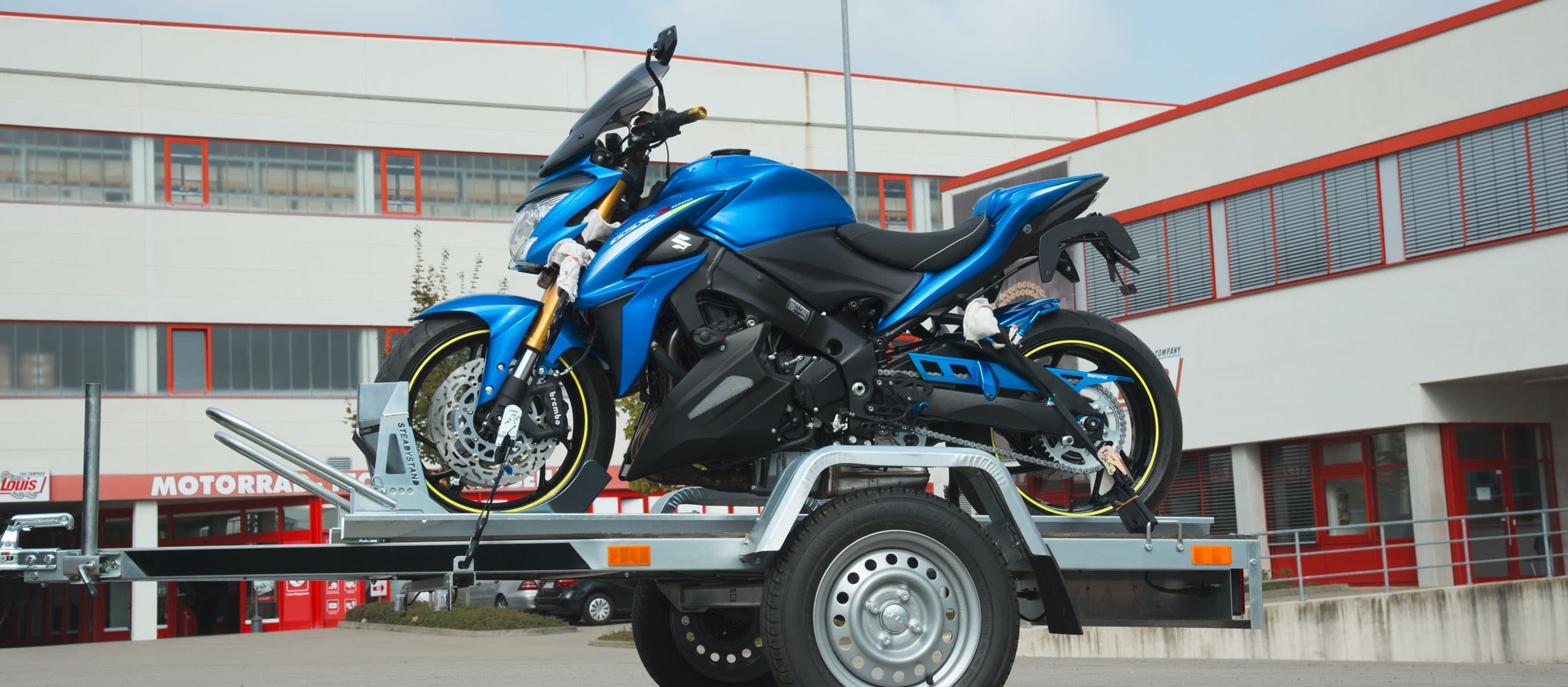Motorcycle transportation lashing made easy
It doesn't matter which means of transport you select for your beloved motorcycle, one thing's for certain: it will have to be properly secured – just like any other load. On the one hand it's all about securing the bike unshakeably. But it's also about making sure that no part of the motorcycle gets scratched, bent or damaged in any other way as a result. Find out how to lash your motorcycle properly here.
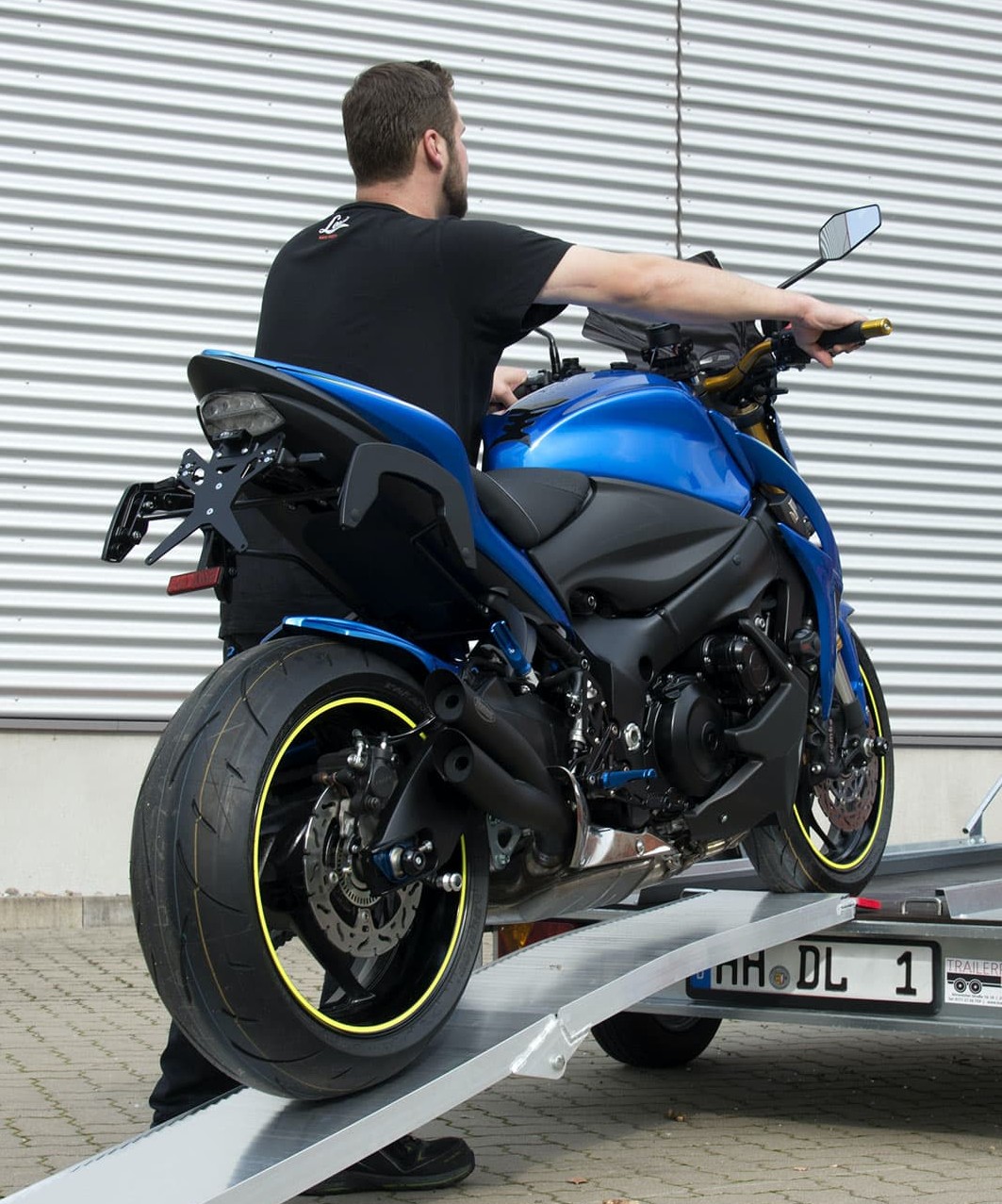
1.
Ride up a ramp
Instead of lifting the weight yourself, just let the engine do all the work:
With sensitive handling of the clutch in first gear, riding up the ramp is easy. An upturned beer crate
or similar item can be used as a step to help you climb up.
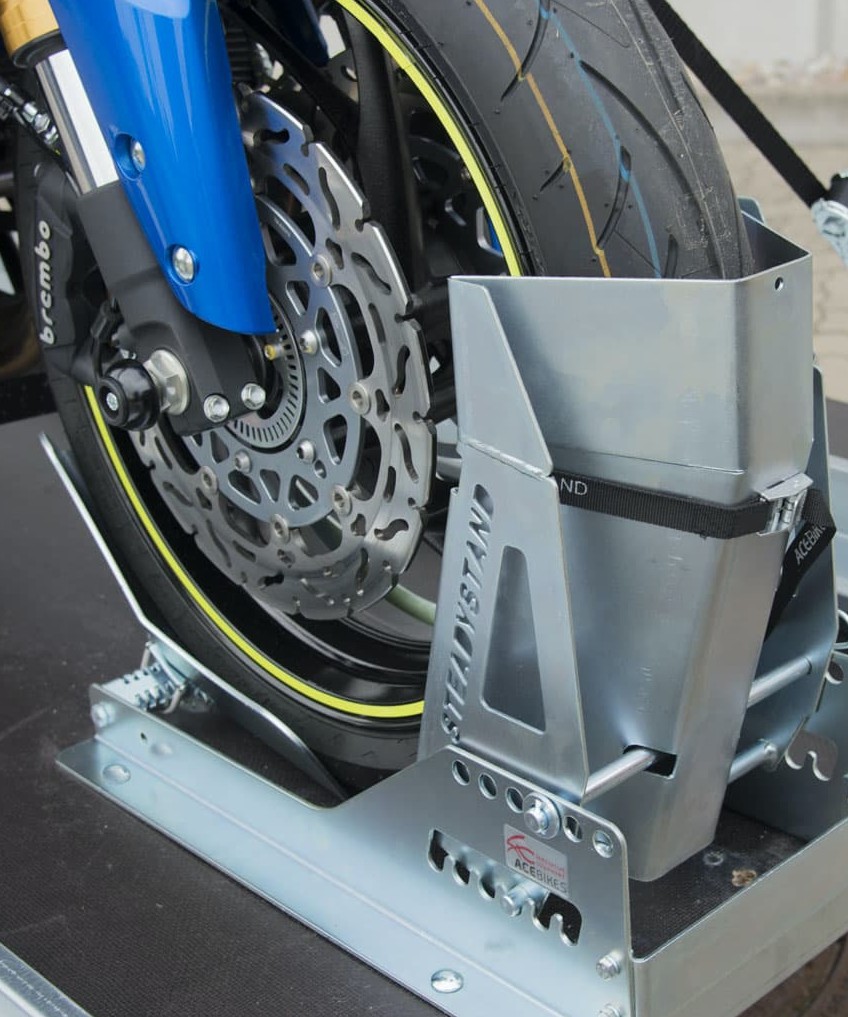
2.
Support the front wheel
It is imperative that you make sure that the front wheel is stably supported facing forward This can be with the tailgate of a van or the U-shaped steel shackle on a trailer.
Front wheel stands which secure the motorcycle vertically are secure and practical. Then attach the front lashing straps.
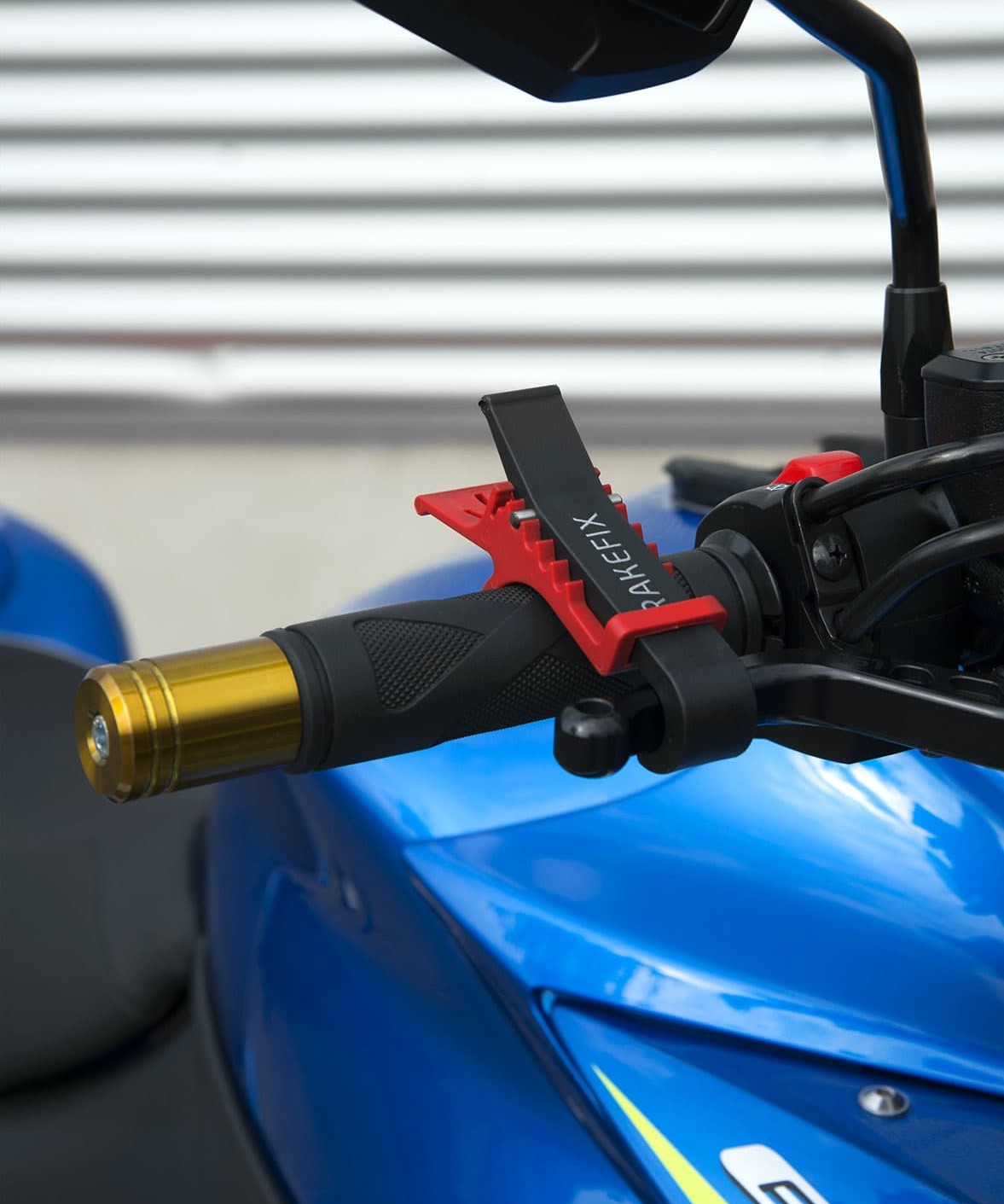
3.
Secure the brake
Once the bike is in position on the loading floor, you first secure the handbrake with a strong rubber band, a cable tie or, the most elegant solution, a brake lever clamp. That way, the motorcycle cannot roll away during the lashing.
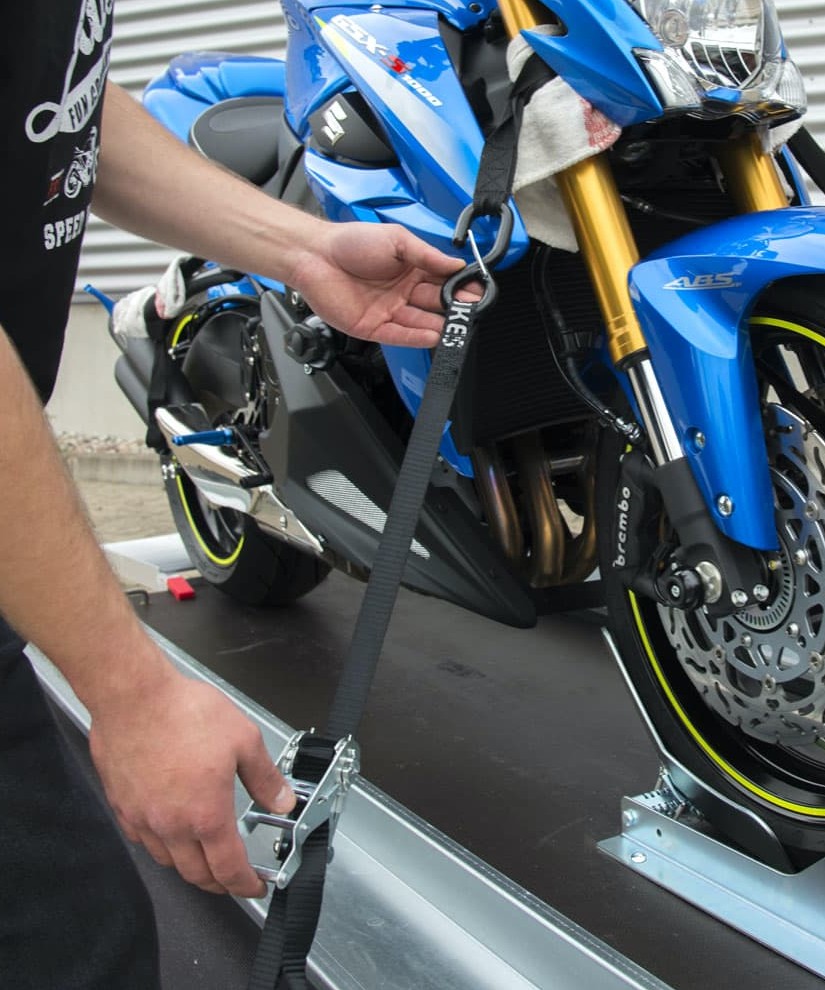
4.
Adjust the lashing straps
When tightening the straps, make sure that the motorcycle is positioned as vertically as possible.
It is best to alternate between left and right when tightening. That way, you pull the motorcycle down to about half the suspension travel. In the end it must no longer be possible to move the bike.
Shake the handlebar firmly to check.
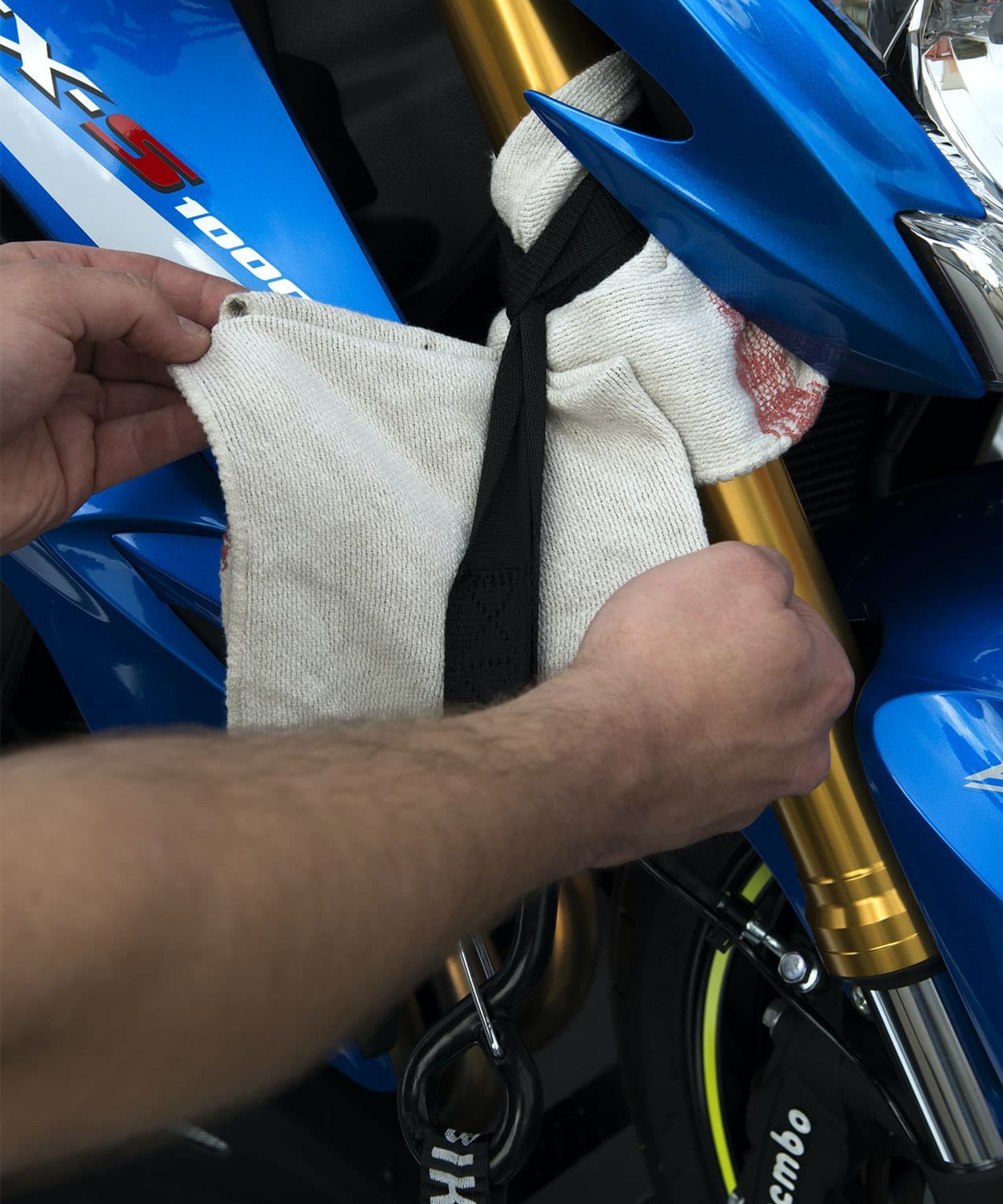
5.
Protect the paintwork and chrome
In some cases it is not possible to prevent a lashing strap from resting on the fairing or an exhaust, for example. You should pad these areas properly to prevent the strap from ruining the great-looking finishes. An old kitchen towel or a piece of foam rubber are tried-and-tested means to prevent abrasion damage.
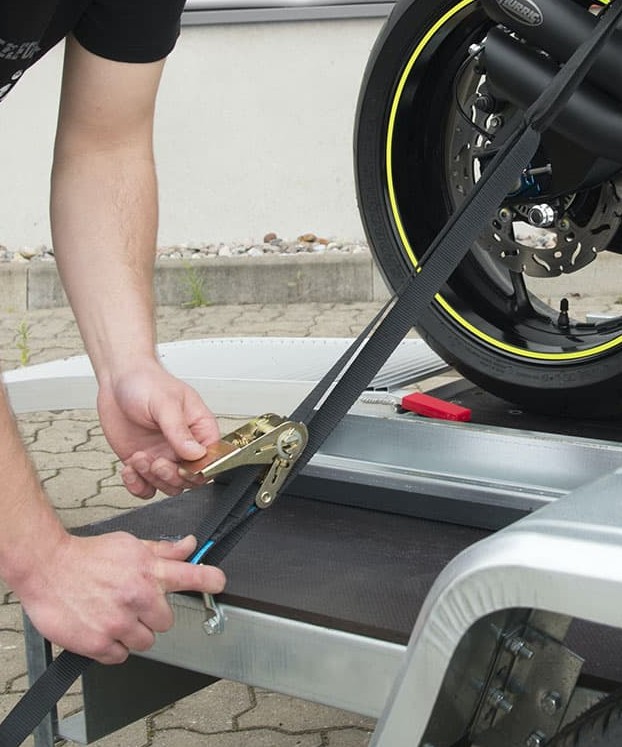
6.
Secure the lashing straps
Do not forget to also secure the loose ends of the lashing straps when you're done. This applies most of all when transporting on open-topped trailers.
In the airstream, belts automatically become
whips which can damage the bike or distract
other road users.
Lashing points on the motorcycle
In order for the motorcycle to stand upright, it must be fastened as symmetrically as possible to the left and the right. This means that two straps pull the bike to the front and two pull it to the rear. Of course, only stable parts which can withstand the pulling force, are suitable as holding points for the straps.
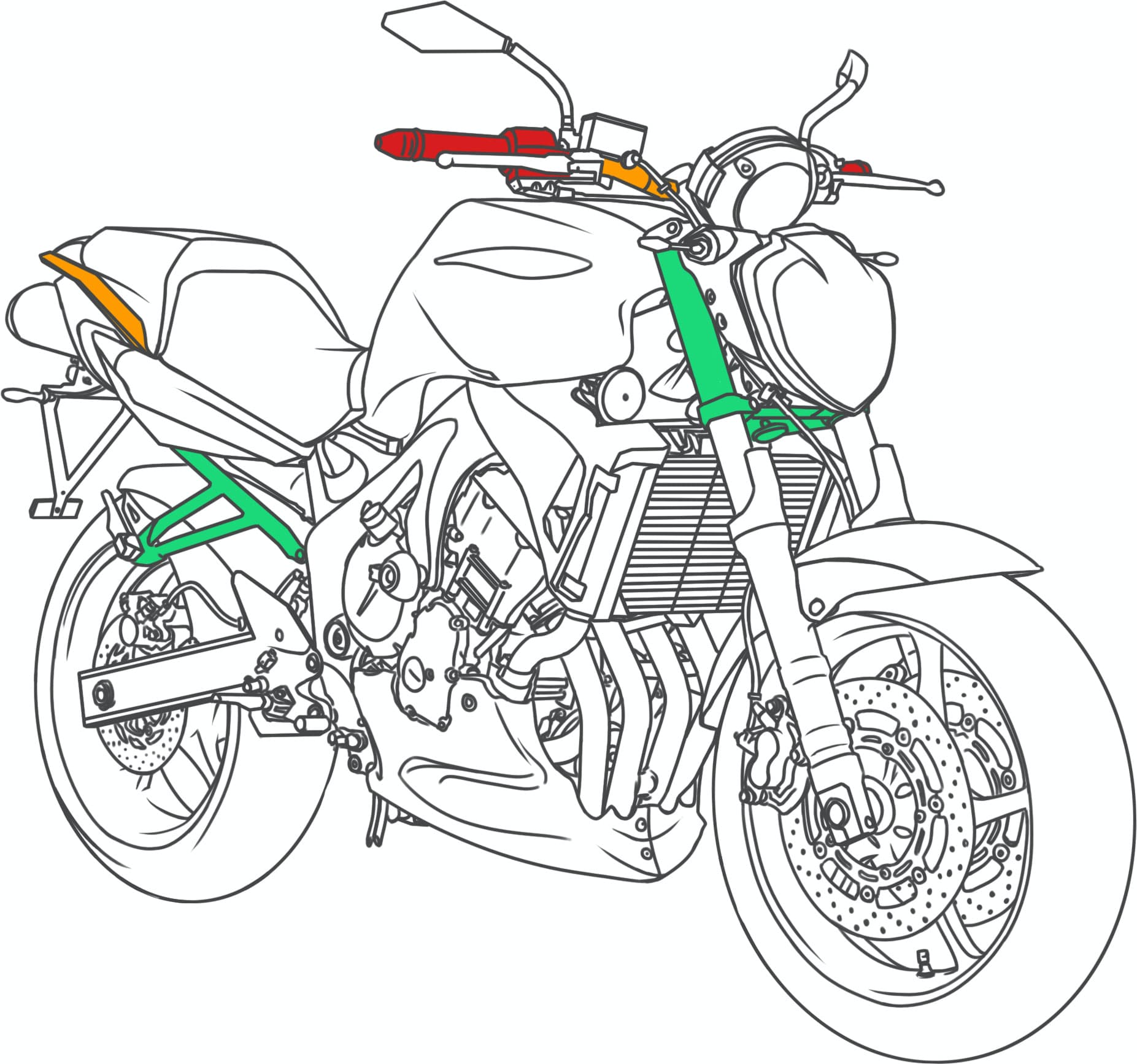
Parts of the frame or stable attachment parts, such as footrest wings or the lower triple tree at the front, are best suited.
If the triple tree is not accessible due to the fairing, the handlebar is another possible fastening point. But please make sure it is as close as possible to the fork because the further the belt is positioned towards the outside, the easier it is for the handlebar to bend.
Pillion grips are also a stable lashing point.
The wider the handlebar, the greater the risk that it will not withstand the pull of the straps. The classic 22 mm format is more sensitive than double-butted handlebars with a diameter of 28 mm. To be avoided at all costs: straps on turn signals, exhaust manifolds and other "soft parts".
Tip: strap check
Just like paintwork and chrome, lashing straps also need protection from sharp-edged motorcycle parts. Remember that the motorcycle and belts will be constantly shaken until you have reached your destination. When transporting on longer journeys use petrol station stops and coffee breaks to check the lashing on the bike and re-tighten straps as necessary.
In order to keep a full-sized motorcycle under control in all circumstances, the lashing straps have to be able to withstand a lot. When selecting belts, always check the blue label. That's where you will find information on the tensile strength (LC = lashing capacity). Belts with LC = 175 daN are sufficient for lighter machines with a weight of less than 200 kg with direct tension. LC = 500 daN is enough to secure even a big lump like a Goldwing. If in doubt, it is better to select a number higher/stronger. The additional security is well worth the price difference.
Tip: extra strap loops make it easier to attach straps with S-hooks.
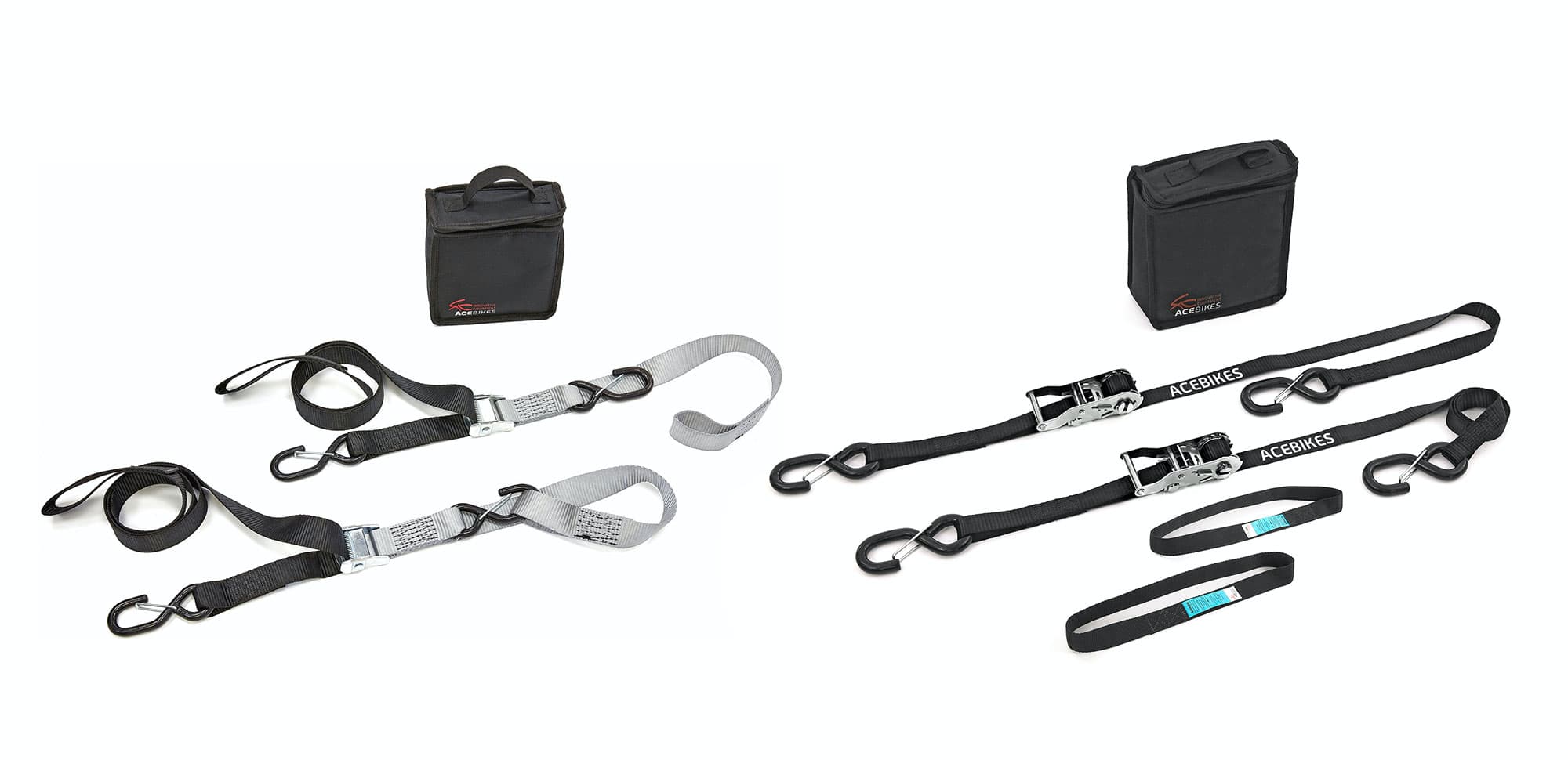
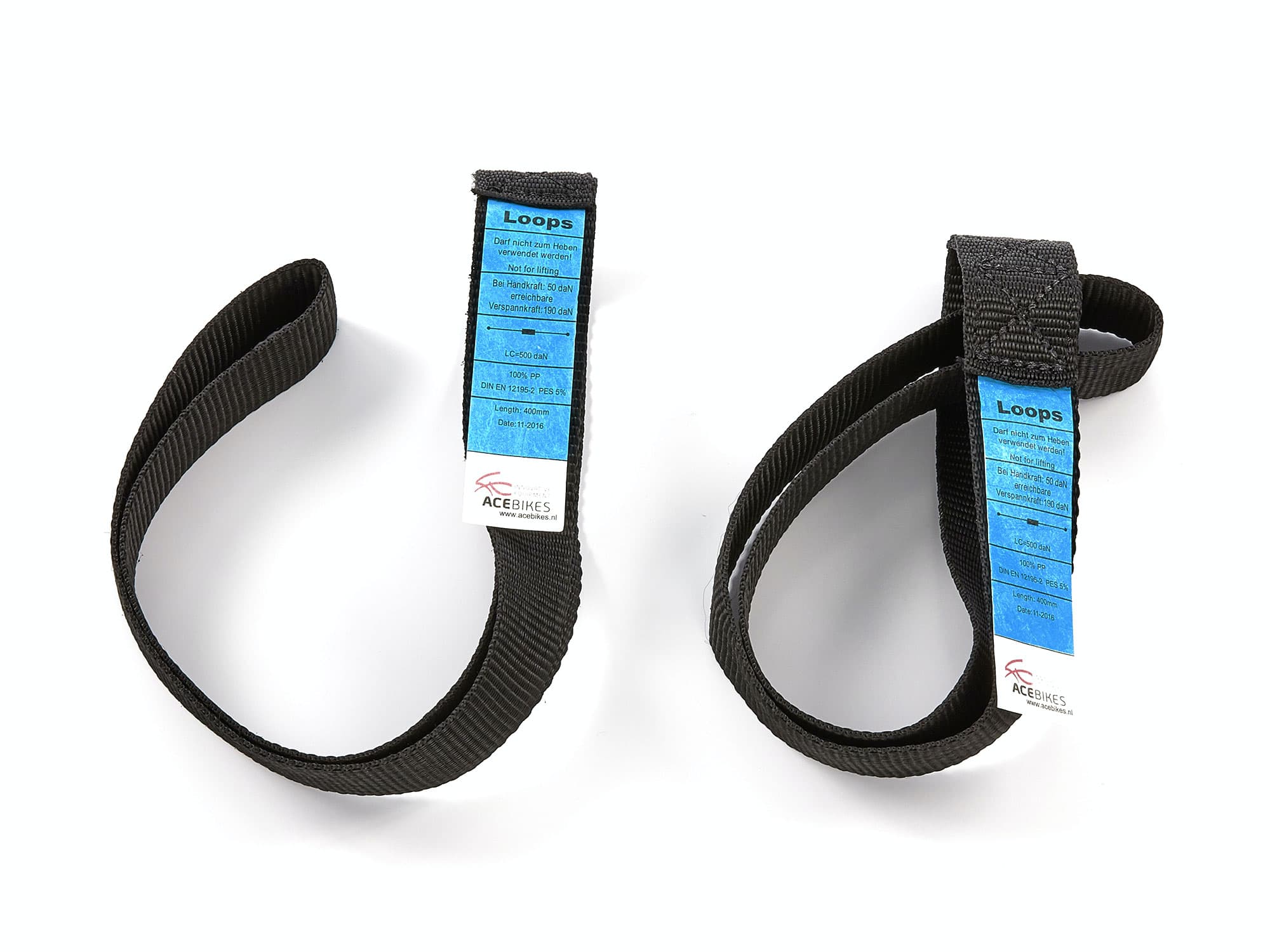
The first obstacle when transporting is the height difference between the ground and the transportation platform. That's why you need a ramp. The greater the height difference, the longer the ramp should be. Arched ramps are ideal as they prevent the motorcycle from running aground at the transition point to the loading floor.
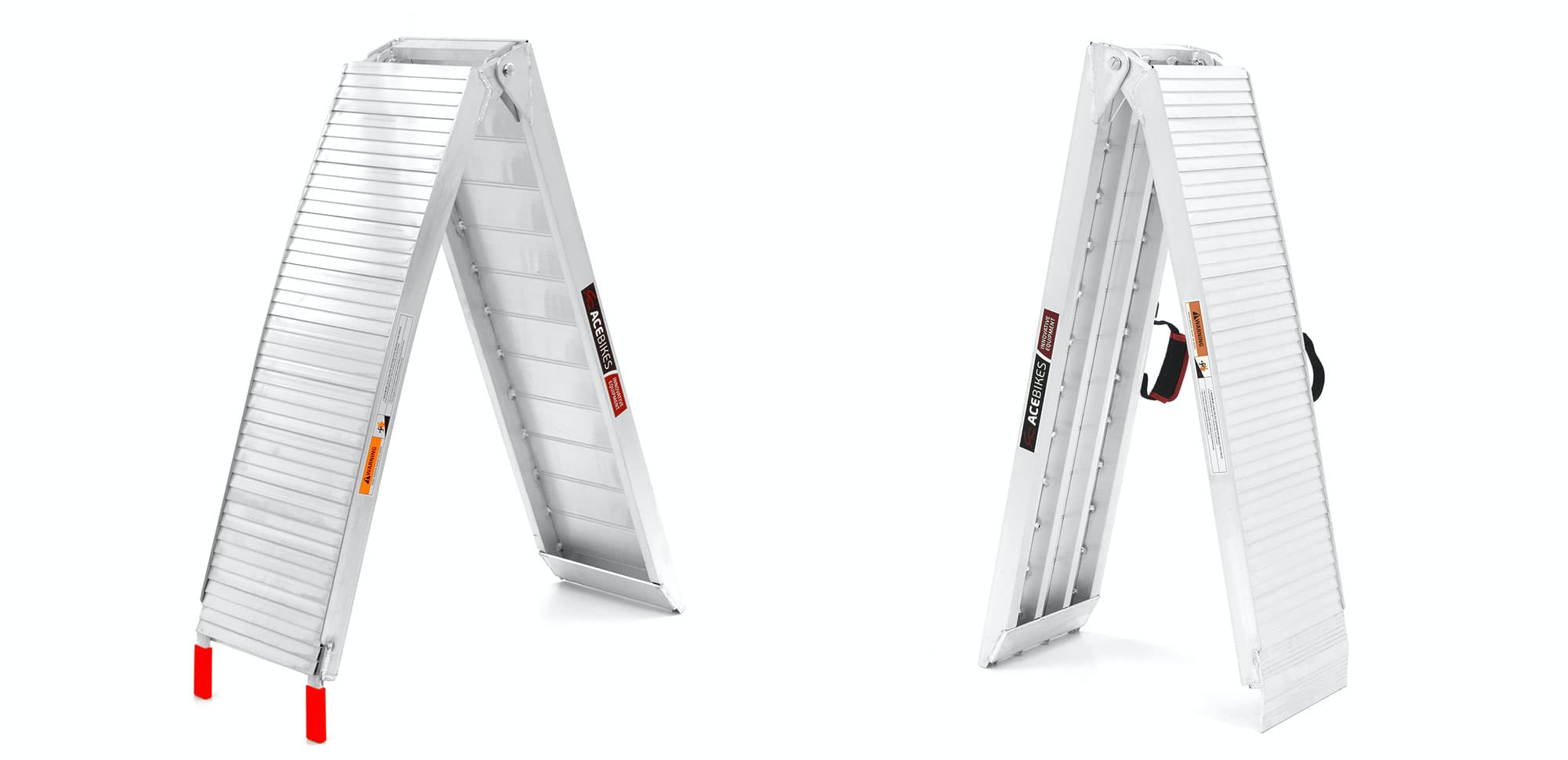
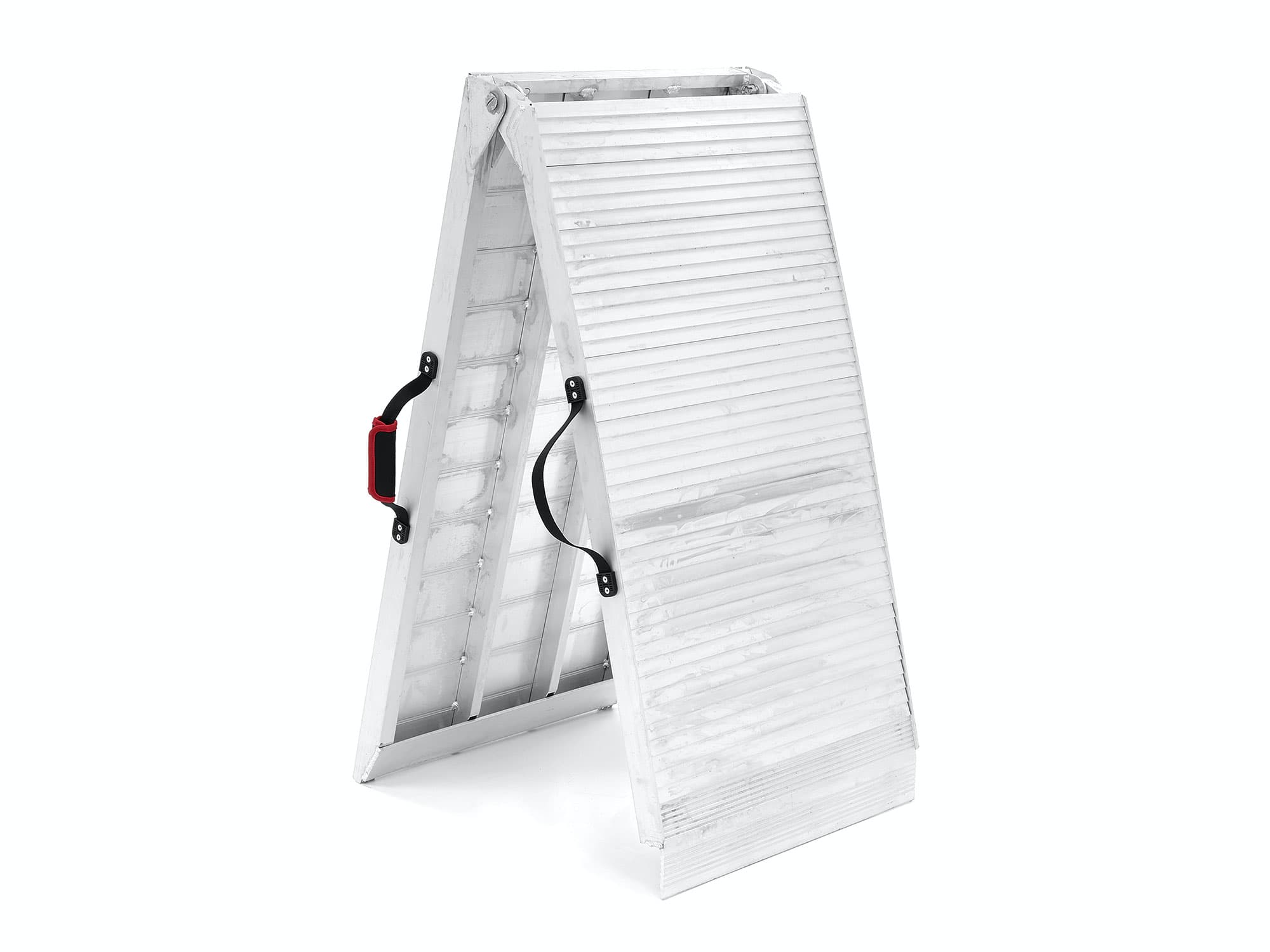
Front wheel stands from Rothewald and Acebikes are a great help when loading and lashing. They hold the front wheel so that it is positioned vertically without any other help.
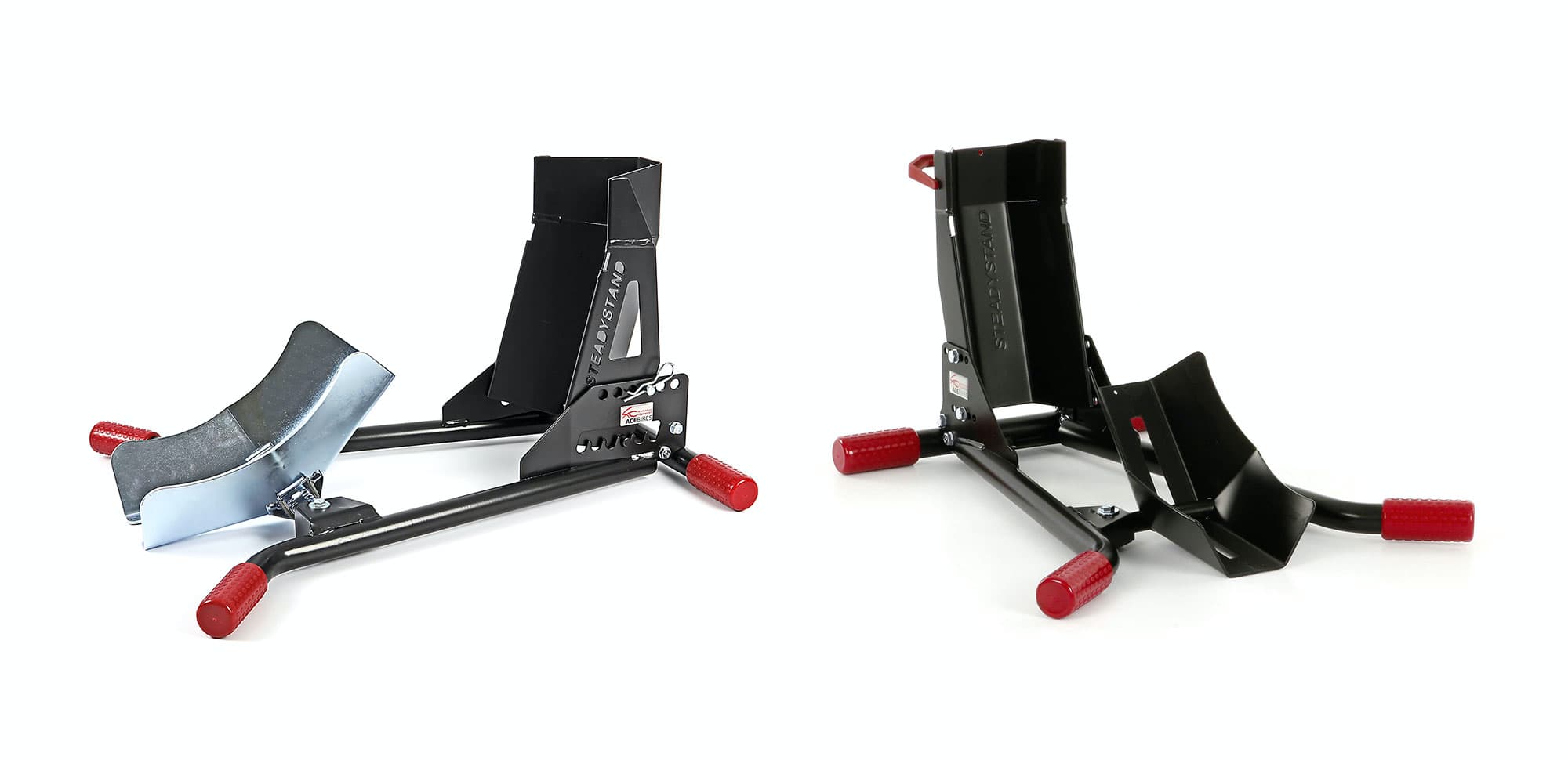
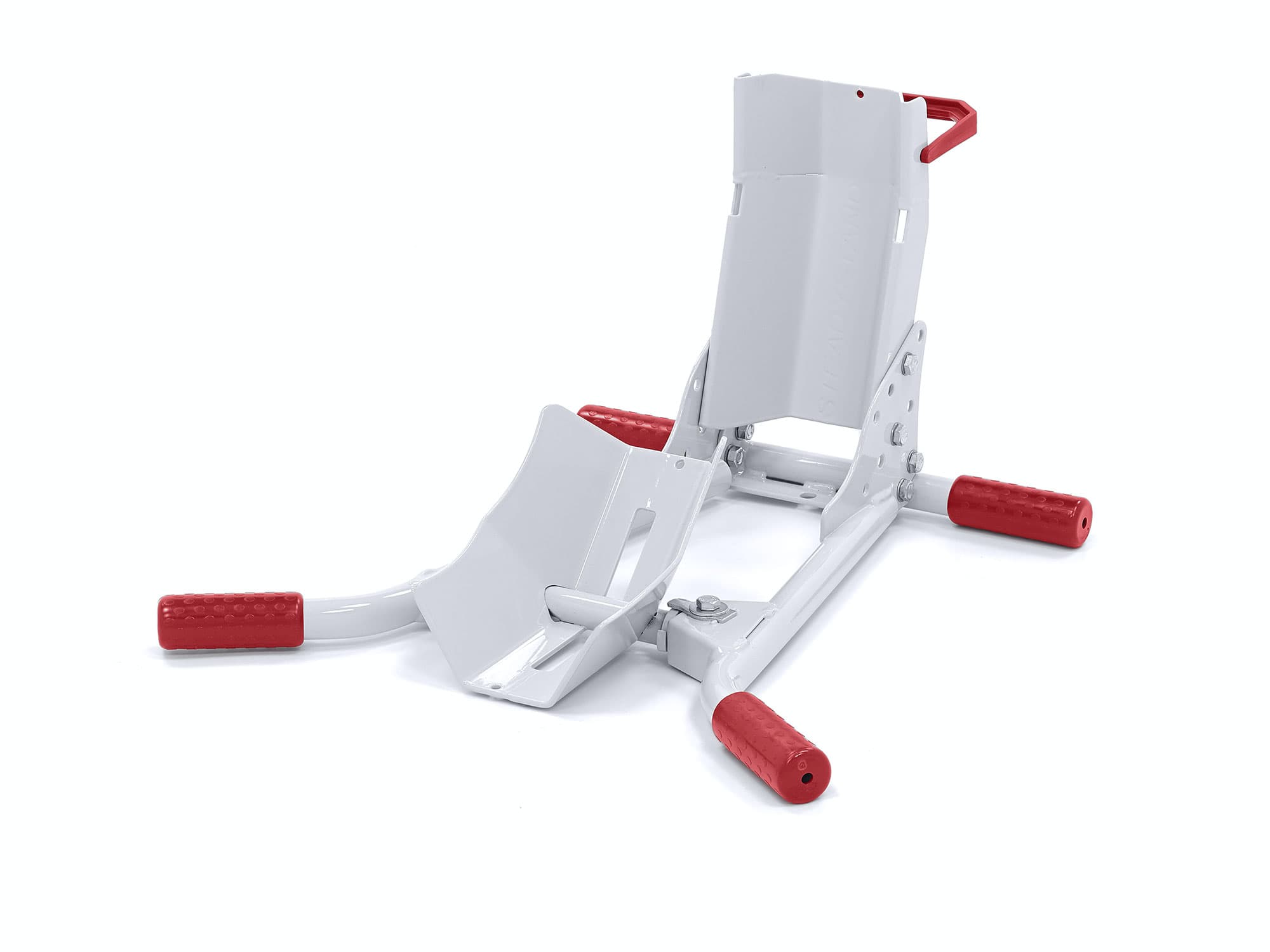
"TyreFix is the name of the system which is used to press only the tyre against the loading floor instead of the entire motorcycle. In principle TyreFix is suitable for all tyre sizes at both the front and back.
However, mudguards make attachment to the front wheel fiddly. When using this system, the belts also have to be pulled as tight as possible".
